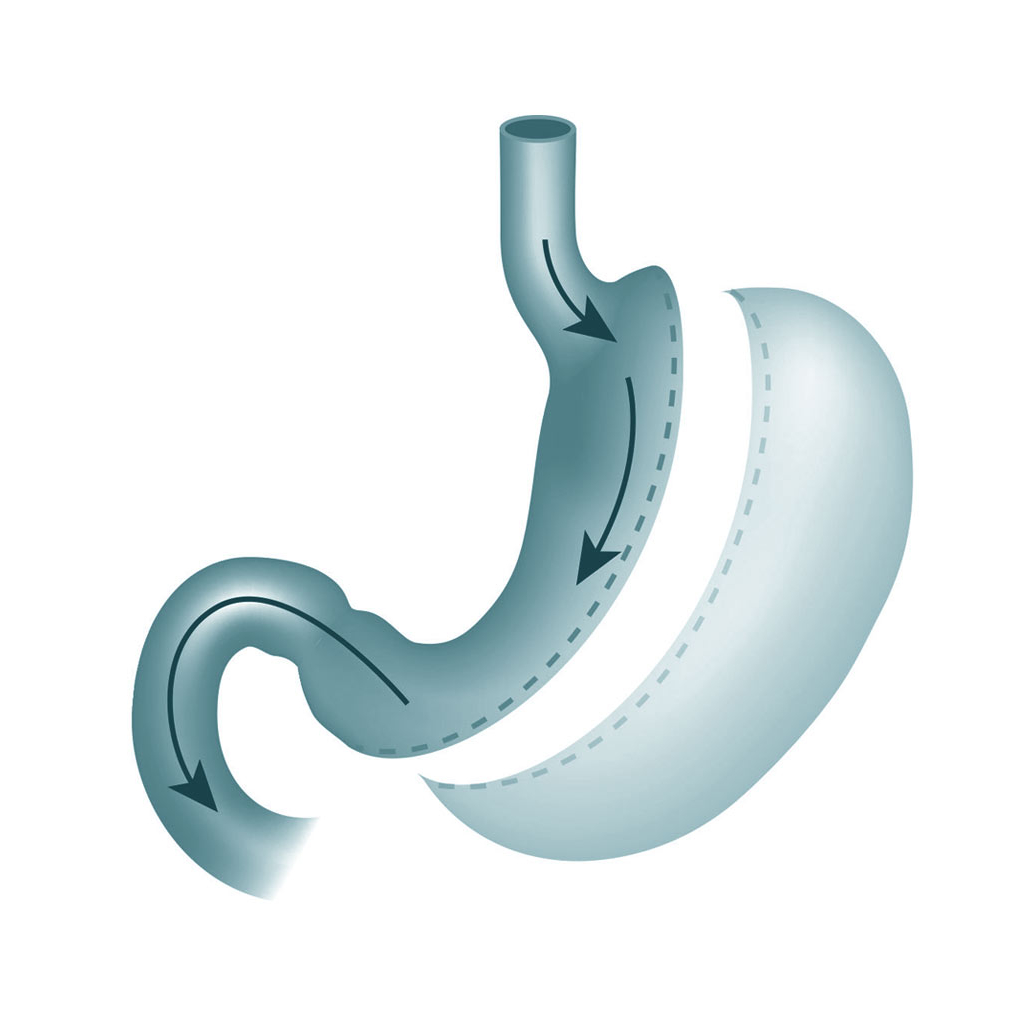Sleeve gastrectomy (gastric sleeve surgery)
Sleeve gastrectomy is currently the most commonly performed weight loss surgery in New Zealand. It’s a straightforward procedure that delivers reasonably good results, especially for people seeking significant, lasting weight loss without intestinal bypass.
This surgery helps you feel full sooner, reduces hunger, and supports metabolic change – all while preserving the natural path of digestion.
How the procedure works
During the operation, approximately 80 to 90 percent of the stomach is removed, leaving behind a narrow, tube-like “sleeve” that holds far less food. The part of the stomach that produces the hunger hormone ghrelin is also removed, which can reduce appetite noticeably.
Importantly, the intestines remain untouched – food continues along its normal route, which can reduce the risk of certain long-term nutritional deficiencies.
Why choose sleeve gastrectomy?

Key advantages:
- Good weight loss results – most patients approach their goal weight within 12 months
- Hormonal changes reduce hunger and help regulate blood sugar
- Fewer anatomical changes compared to bypass surgery
- Lower risk of long-term malabsorption than with procedures that reroute the intestines
- Typically performed laparoscopically, supporting quicker recovery
Considerations:
- Like all bariatric surgeries, lifelong vitamin and mineral supplements are essential
- A small risk of leak exists along the staple line (rare but important to monitor)
- Some patients may develop or worsen reflux symptoms following surgery
Is sleeve gastrectomy right for me?
Sleeve gastrectomy can be an excellent option for many people, especially those early in their weight loss journey or those who may not need a more complex bypass procedure. It offers a strong balance between effectiveness and simplicity, with fewer anatomical changes than other surgeries.
We’ll work with you to determine whether this approach aligns with your goals, preferences, and health background.
What to expect after surgery
- Hospital stay is typically one to two nights
- Most people return to normal routines within two to three weeks
- A structured post-op nutrition plan helps ease the transition back to food
- Long-term support from our team helps you maintain results safely
Begin your wellness journey today
You don’t have to have it all figured out. Whether you’re just starting to research or ready to move forward, we’re here to help you make an informed decision that works for your life.
Your Body Mass Index (BMI) helps assess whether you might benefit from surgery.
We’ll send you an easy-to-read guide that outlines options, eligibility, and what to expect.
A referral by your GP is required. Talk with our team to understand what might be right for you.

